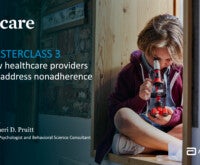What is medication adherence? And how can behavioral science help understand it?
Defining adherence from a scientific standpoint. Led by Dr Kate Wolin, this masterclass serves as an introduction to adherence – defining it from a scientific standpoint. It highlights the scale of non-adherence and the true cost to patients, public health and society as a whole. Dr. Wolin will present the most common behavioral drivers of…







